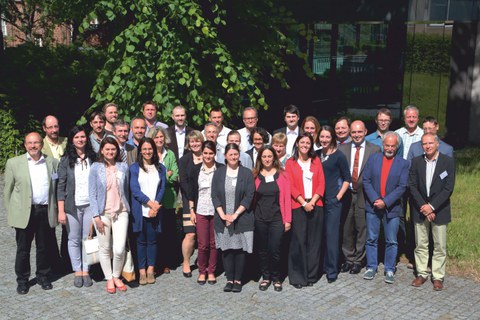Jul 03, 2017
Professor Kalbitz named as Highly Cited Researcher

Group picture of Consortium
Karsten Kalbitz, Professor of Soil Resources and Land Use at the Faculty of Environmental Sciences, was named as one of the Highly Cited Researchers 2016 by Clarivate Analytics (former Intellectual Property & Science business of Thomson Reuters) making him one of the most valuable and significant researcher in his area. In their annually published list of citation analysis, more than 3,000 researchers from 21 fields of sciences were selected based on the number of highly cited papers they produced over an 11-year period from January 2004 to December 2014.
Since 2014, Professor Kalbitz has been working at the Institute of Soil Science and Site Ecology at TU Dresden. Before that, he researched and taught at the Universities of Amsterdam and Bayreuth and the Center for Environmental Research in Halle (Saale). One of his main research area is the dynamics of organic matter in soils and at the interface of terrestrial and aquatic ecosystems in a changing environment.
Link to the list of Highly Cited Researchers http://ipscience.thomsonreuters.com/news/clarivate-analytics-names-2016-highly-cited-researchers/ as well as further information about Professor Kalbitz https://tu-dresden.de/bu/umwelt/forst/boden/das-institut/staff/professoren/professur?set_language=en
